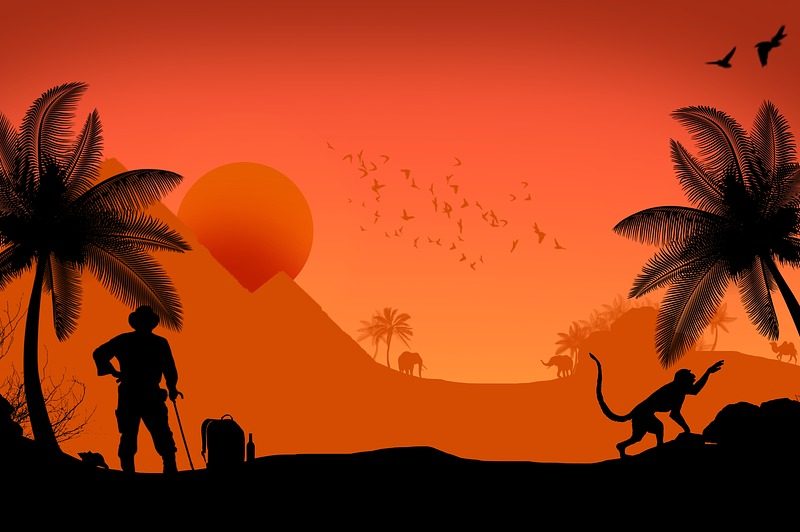Long live the ocean by Erik Orsenna of the French Academy
 Long live the ocean is a collection of 4 books:
Long live the ocean is a collection of 4 books:
. Two summers
. The company of the Indies
And with Isabelle Autissier:
. Salute to the Great South
. Passing through the North
When Erik Orsenna swaps the green suit for the yellow raincoat, the writer becomes a sailor, unless it is the other way around, but let’s let him speak since he gives us the key in his preface: The older I get, the more the resemblance seems total between writing and sailing. To hoist the sail is to prepare one’s blank page. Silence closes in on words like the sea on a wake”
Two summers
The first opus, Two summers, tells of the impossible translation of Vladimir Nabokov’s masterpiece, Ada or the ardor, by a young translator installed on the island of Bréhat, and who finds himself facing an insurmountable wall before the difficulty of such a work. Fortunately, a beautiful solidarity is going to be forged, and the islanders are going to block to help him to carry out his project.
Erik Orsenna presents the case as a true story. Can we invent such adventures, as they are so close to the legend?
The adventure is joyful, but the spirit is elsewhere. As an expert of the thing, our author transmits to us his experiment on these strange territories which are not quite the firm ground, and almost already the open sea, namely the islands. It smells of iodine and sea spray, salt and moorland, but above all the warmth, generosity and beautiful solidarity of the islanders embarked for the best on a ship that is not moving.
We join this beautiful crew with jubilation, so much the story is joyful, and then the style of our academician is a nugget, so let us rock, since as the title of another of his books says: “Grammar is a sweet song”
The Enterprise of the Indies
Change of register with the second work, The Company of the Indies. This time, Erik Orsenna slips into the shoes of Bartolomé Colombus, who recounts the eight years he spent in Lisbon, along with his brother Christophe, preparing, as cartographers, this crossing to the West that was to revolutionize our knowledge of the world.
Bartolomé comes to the end of his life, he remembers and immerses us in the Lisbon of the second half of the fifteenth century, a city entirely turned to the sea, devoured by the thirst for new discoveries, obsessed by those maps still covered with unknown areas. And here is Christopher Columbus, an exceptional navigator with fierce energy, totally obsessed by his project to open a new route to India, and who will die without knowing that he has discovered a new continent.
Bartolomé also remembers with remorse the horrible treatment inflicted on the Amerindians, whose cause the Dominicans Antonio Montesinos and Bartolomé de las Casas will courageously defend.
The India Company is both a book of history with a capital H, and of adventure, one of those that take men to the conquest of the world.
Hail to the Deep South
For the third book, Salute to the Deep South, we embark on board Ada, Isabelle Autissier’s sailing boat!
Destination: Antarctica, the great white continent, its furious seas, its deadly traps and its heroic explorers, many of whom have never returned. What is this strange engine that pushes men to face the greatest perils to discover totally inhospitable lands?? What are the resources that man has to survive when all seems lost??
Salute to the Deep South makes us live these perilous navigations in the middle of the ice, the currents, the storms and the old anguishes or experienced by the authors themselves.
The navigator-writer is modest, facing the power of the elements, but his pen remains lively and always cheerful, well supported by that of Isabelle Autissier, as skilled at writing as at the helm of her boat.
Going through the North
This time we are heading for the far North, to discover these immense and icy territories.
The Arctic is examined with a fine-tooth comb: we will learn all about the currents, the winds, the fauna, the (modest) flora, the history of these icy territories, the men who live there or have lived there, and the incredible obstinacy of the intrepid navigators who decided to explore these unknown territories at any cost, even if it meant losing their lives, and who, for posterity, will see their name associated with an island, a sea, a heroic story;
From the prehistoric men crossing the Bering Strait on foot to the American or Russian military observing each other during the cold war, from the trappers hunting fur animals who will make their fortune to the prospectors eager for the riches of the subsoil, man has always tried to appropriate these territories.
But here is the global warming. Each year, inexorably, the ice retreats.
Little by little, the appetite of the men, and the economic interests let foresee the possibility of exploiting the maritime way of the Great North, with its procession of ice-breakers, tankers, gigantic port installations, with all the risks that it involves.
The richness of the subsoil also attracts the most voracious appetites.
The whole in the middle of an extremely fragile and terribly threatened ecosystem.
The sudden story is chilling, the report is terrible, and the outcome unfortunately seems inevitable, but are we really aware of all the probable consequences of this announced disaster which, by the butterfly effect, will inevitably have repercussions throughout the world?
It is on this very dark conclusion that we will close our book (available here).

